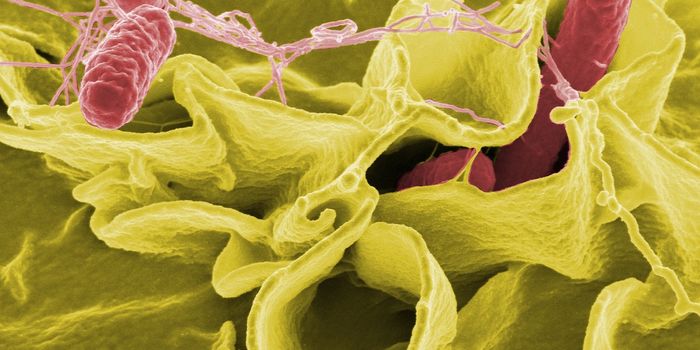Some Immune Disorders Have an Epigenetic Basis
Twin studies can be enormously helpful to researchers that are trying to determine if the cause of a disease is genetic. Identical twins share the same genome, so if twins both have the same disorder, a genetic disease will affect both of them. A disease that is not due to genetics won't affect both twins at the same rate.
Researchers have long wondered what was causing immune disorders that arise in only one identical twin; new findings reported in Nature Communications suggested that epigenetics are a reason. The epigenome refers to chemical and structural changes in the genome that do not impact the sequence but can alter gene expression. While twins share the same genetic sequence, their epigenome will gradually become less similar over time as influences from the enviroment impact epigenetics.
It seems that the epigenome is involved in common variable immunodeficiency (CVID). CVID describes a number of immune disorders that occur when the body is unable to generate sufficient protective antibodies. CVID patients have difficulty with repeated or chronic infections. Antibody levels in patients tend to be low because of defects in the cells that make them, B cells.
About 20 percent of CVID cases are due to gene mutations, so 80 percent of cases having an unknown cause, researchers thought things other than genetics were playing a significant role. One recent study found that methylation patterns were altered in CVID patients. Methylation is one of the most common epigenetic marks.
Scientists investigated the basis of CVID by analyzing immune cells at the single-cell level. The researchers obtained cell samples from CVID patients and their unaffected twins, as well as unrelated CVID patients and healthy people.
CVID patients had fewer B cells than their unaffected twins, and there were epigenetic defects in their B cells. Problems included altered methylation, chromatin inaccesibility, which also impacts gene expression, and serious communication problems between defective B cells and other types of immune cells, resulting in a dysfunctional immune response.
Communication among immune cells is essential. "We can see in healthy individuals how cells talk to each other and from there, identify where communication breaks down in individuals with common variable immunodeficiency. In the immune system this cell-to-cell communication is critical to define the ability of B cells to mature and produce antibodies," said first study author Dr. Javier Rodríguez-Ubreva of the Josep Carreras Leukemia Research Institute.
This study revealed pathways that might be targetable for CVID treatment.
Epigenetic changes and cell-to-cell communication dysfunction in twins with CVID were compared to a larger group of CVID patients. This comparison revealed that the underlying problems were similar, and could be used to create a model to investigate the disease. Insights gained from the investigation of a model might be used to develop new treatments.
Sources: Wellcome Trust Sanger Institute, Nature Communications









